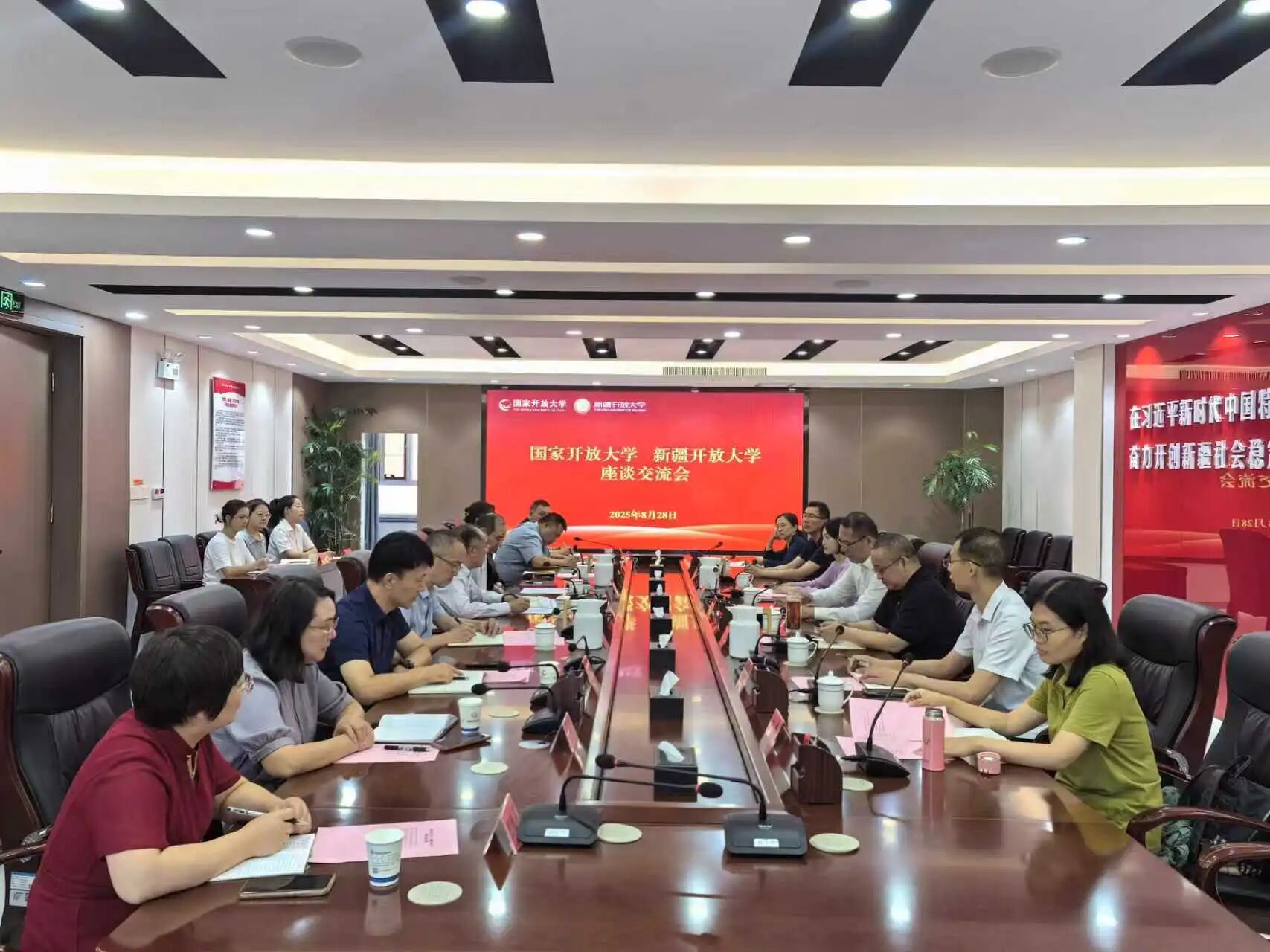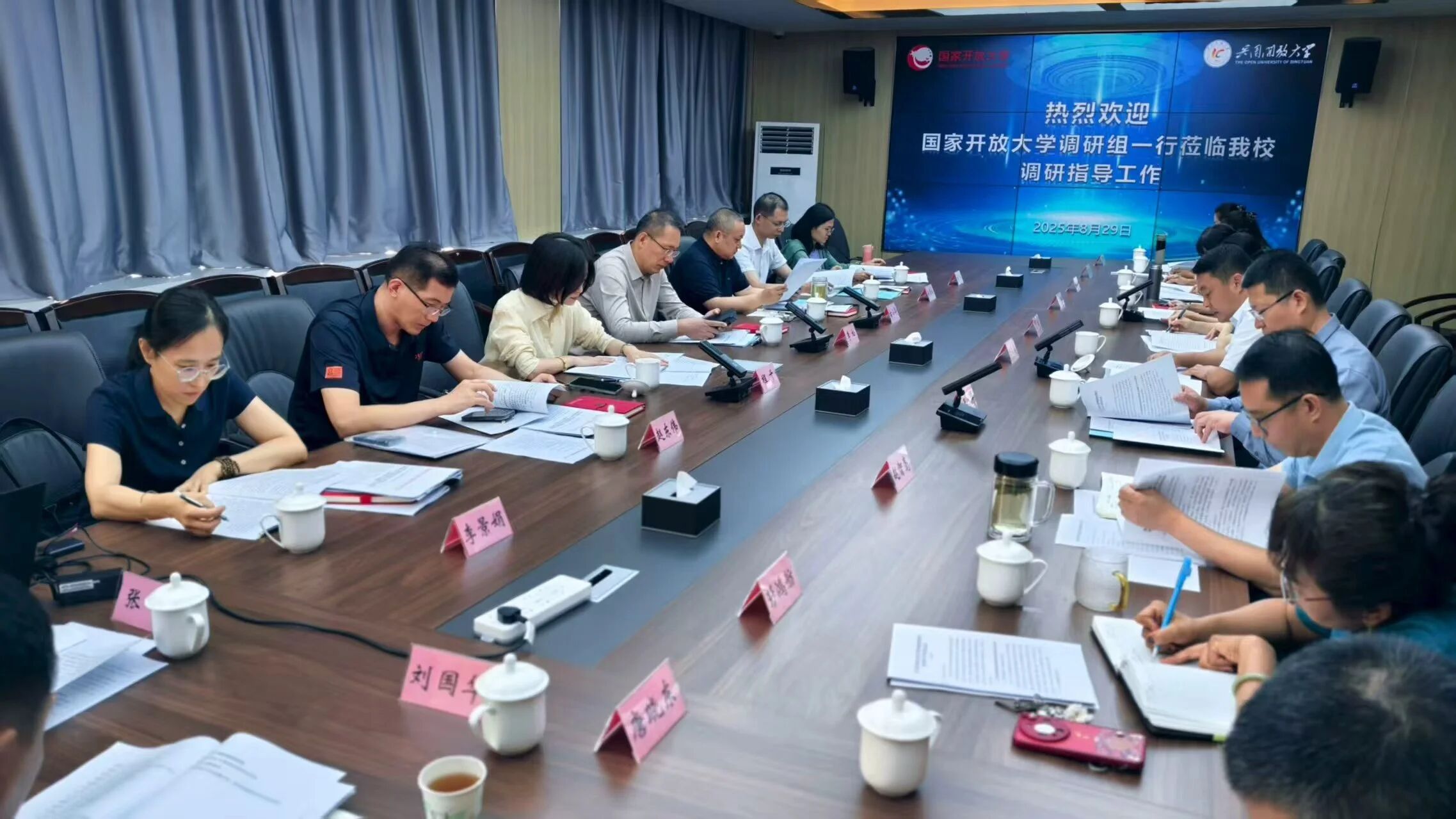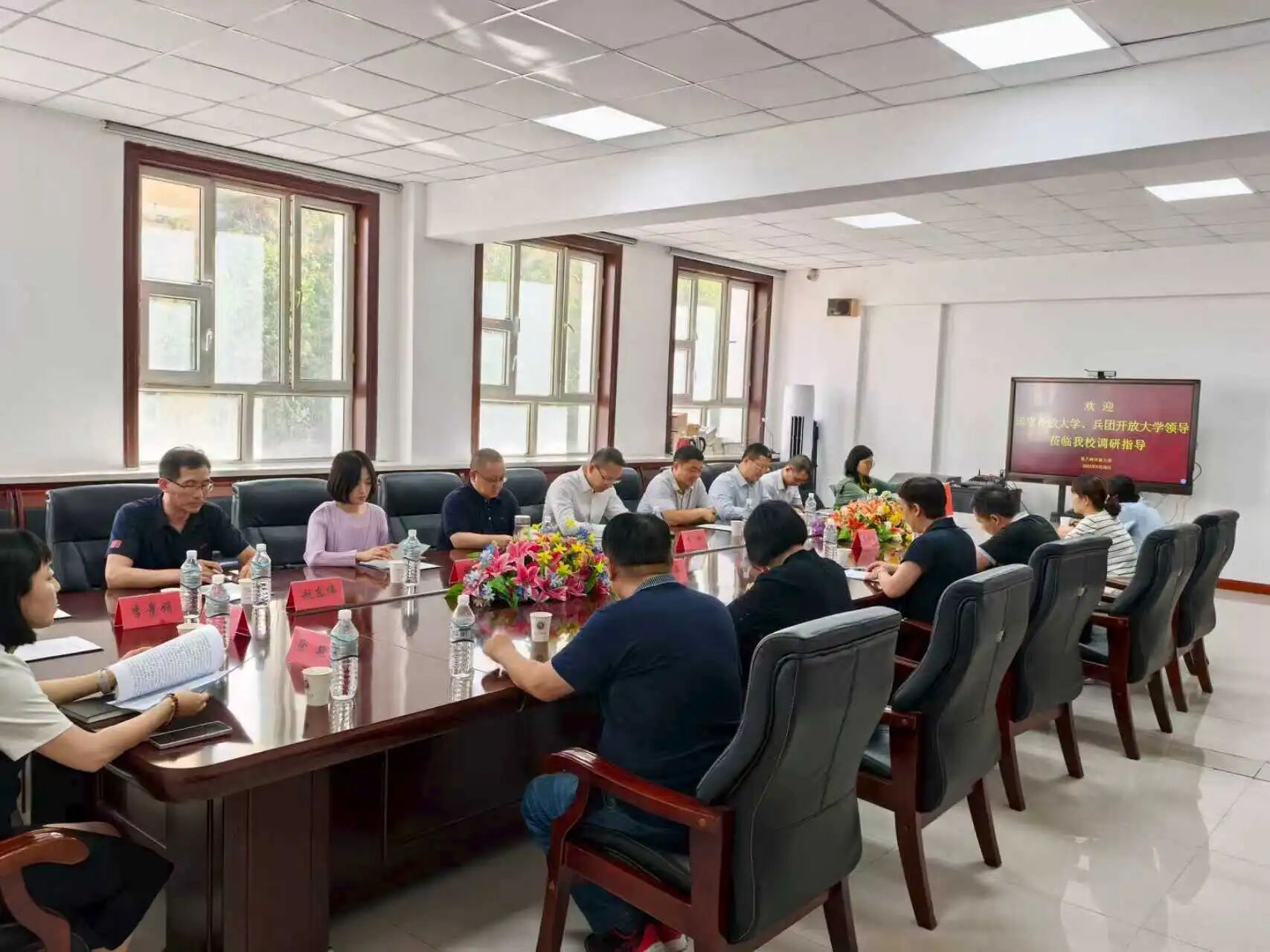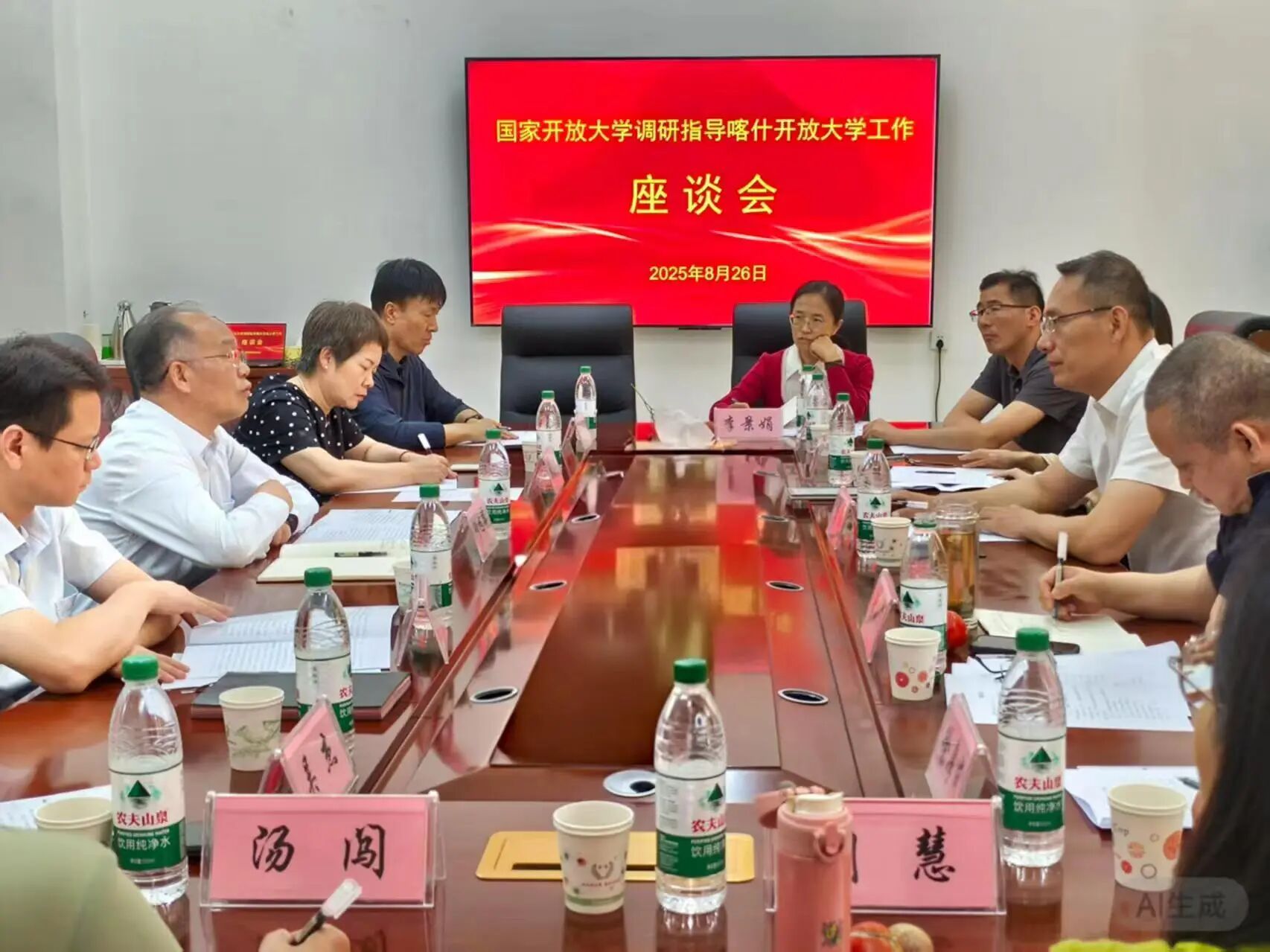 Xinjiang, 25–29 August 2025 – LI Song, Vice President of the Open University of China (OUC), led a delegation to Xinjiang to conduct research on high-quality development of open education.
Xinjiang, 25–29 August 2025 – LI Song, Vice President of the Open University of China (OUC), led a delegation to Xinjiang to conduct research on high-quality development of open education.
The team visited the Open University of Xinjiang, Kashgar Open University, Shache County College, the Open University of Bingtuan and Shihezi Open University, Eighth Division. Through site visits, on-site exchanges and seminars, the visiting delegation engaged closely with each institution for their current practices and challenges in talent development, programme design, discipline development, faculty allocation, teaching delivery, examination organisation and reform, and administrative services.

LI Song complimented the institutions’ recent achievements. He stressed that Xinjiang’s vast territory and scattered student population demand a flexible, adaptive, far-reaching lifelong learning support system. Open education, serving the broadest range of learners, can systematically enhance learners’ political literacy, national identity and vocational competence, aligning individual growth with regional development.


LI Song stressed that the open university system must actively shoulder its mission in the new era, dismantle geographical and temporal barriers, and channel premium learning resources and seamless educational services to remote areas. Guided by the principle of demand-driven instruction, the system should accurately identify learner’s learning demands, continuously optimise educational provision, elevate teaching quality, and burnish the sector’s reputation to deliver open education that truly satisfies the public. He further called for leveraging the system’s institutional strengths to intensify resource sharing and regional collaboration, encouraging local open universities to build distinctive, high-level programmes based on local conditions and thereby driving the high-quality development of open education.

The research systematically distilled the experiences of open universities in Xinjiang and the Xinjiang Production and Construction Corps, pragmatically analysed current difficulties and challenges, and put forward a series of targeted recommendations. These findings provide a solid foundation for future policy-making and operational planning, and further consolidate the shared vision and joint efforts of the open-education system to advance collective development.
GU Xiaohua, CHENG Qian and others from OUC participated in the research.
Contributed by OUC Academic Affairs Department